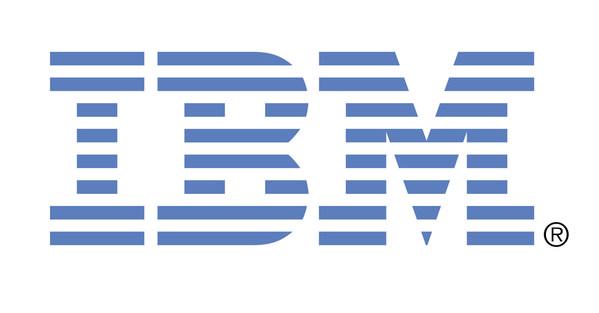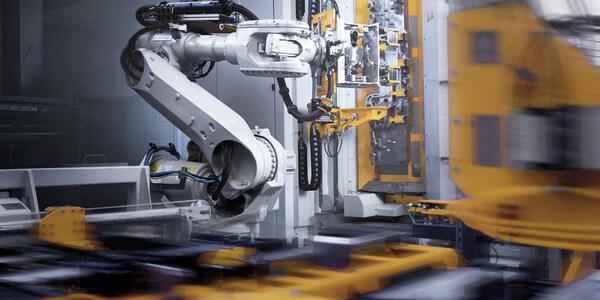 |
BEIJING, Nov. 4, 2024 /PRNewswire/ -- Currently, the manufacturing industry is undergoing a profound transformation driven by artificial intelligence (AI) technology. The new generation of AI technology represented by big models, due to its powerful data processing capabilities, accurate predictive analysis and efficient automation level, is deeply integrated into all aspects of the manufacturing industry at an unprecedented speed, reshaping the production model, management method and value chain of the manufacturing industry, injecting new vitality into the traditional manufacturing industry, and promoting the accelerated arrival of "smart factories".
IBM expert opinion: IBM enterprise-level AI injects new impetus into the intelligentization of multinational manufacturing
Challenges facing multinational manufacturing in China
Multinational manufacturing companies face a series of complex and severe challenges in the Chinese market. First, the increasingly fierce market competition requires multinational companies to continue to innovate in order to maintain their competitive advantage. With the rapid rise of Chinese local companies, multinational companies not only need to deal with the pressure from their peers, but also need to adapt to the flexible and changeable competition strategies of local companies. Secondly, the continuous rise in costs and the shrinking profit margins require multinational companies to find a balance between cost control and profit improvement. In addition, the uncertainty of the supply chain, the compliance requirements of data localization and network security, and the differentiation of localization needs have further increased the operational difficulty of multinational companies. Finally, the differentiation of localization needs requires multinational companies to have a deep understanding of the Chinese market and provide products and services that are closer to consumer needs.
Faced with increasingly severe challenges, multinational manufacturing companies need to rely on the powerful empowerment of enterprise-level AI to solve them and help achieve efficient operations and sustainable development.
IBM's enterprise-level AI drives smart manufacturing upgrades
After years of technological accumulation and innovation, IBM Enterprise AI (hereinafter referred to as "IBM AI") integrates the capabilities of its new generation of AI and data platform WatsonX , which not only includes the advantages of traditional machine learning platforms, such as data processing, feature engineering, model training and evaluation, but also has the currently highly anticipated generative AI capabilities. This integration enables IBM's AI technology to have more powerful capabilities in handling complex problems, providing accurate predictions and optimizing decisions, and can bring profound digital transformation to multinational companies in multiple key areas, helping companies achieve efficient operations and sustainable development.
In the field of R&D, IBM AI builds knowledge graphs, integrates and processes massive amounts of information from multiple data sources, and deeply explores the hidden connections and intrinsic relationships between data, providing solid data support for R&D decisions. At the same time, IBM AI creates a unified knowledge sharing platform, using intelligent question-answering and search technology to break down information silos and improve knowledge sharing efficiency.
In the production field, IBM AI uses machine learning technology to deeply mine production line data, identify key factors that affect product quality, and help companies control product quality from the source and reduce production costs. At the same time, IBM AI optimizes the company's limited resources and helps companies formulate optimal production plans through decision-making optimization technology to minimize costs and maximize efficiency. In addition, IBM AI conducts real-time monitoring and data analysis of production equipment to predict potential failures, helping companies formulate maintenance plans in advance, avoid equipment downtime, and ensure production continuity. With the help of IBM visual inspection technology, product quality and inspection efficiency can be improved.
In terms of supply chain, IBM AI integrates multiple algorithms and models to conduct multi-dimensional and multi-level demand forecasting, helping companies to accurately grasp market demand and formulate reasonable procurement and production plans. At the same time, IBM AI provides decision-making references for companies through simulated pre-production scheduling, optimizes production scheduling, improves production efficiency, and reduces inventory costs. In addition, IBM AI outputs the optimal inventory strategy based on demand data, spare parts categories and other data to help companies minimize inventory costs and improve capital turnover efficiency. IBM AI also provides intelligent logistics scheduling solution recommendations based on scheduling rules and priorities, optimizes logistics resource allocation, improves logistics efficiency, and reduces logistics costs.
In terms of after-sales service, IBM AI-driven after-sales service assistant can provide one-stop services such as fault diagnosis, solution query, service provider policy consultation, and after-sales work order system problem consultation to improve customer satisfaction. At the same time, IBM AI analyzes data from the voices of consumers at various touchpoints, gaining insights into consumer needs, helping companies optimize products and services, and improving customer experience.
In terms of operations, IBM AI automates and optimizes tasks such as recruitment, employee management, and performance management in human resource management, improving human resource management efficiency and reducing labor costs. At the same time, IBM AI provides AI-generated code recommendations based on natural language input or existing source code, helping companies improve IT system development efficiency and reduce development costs.
In terms of sales, IBM AI provides intelligent Q&A and sales strategy support to help sales staff improve sales efficiency and achieve sales targets. At the same time, IBM AI builds a sales quantity forecasting model based on historical sales data and business expert judgment to help companies formulate reasonable sales plans and improve sales performance. In addition, the 7*24 intelligent customer service robot driven by IBM AI can provide all-weather customer service, answer customer questions, and improve customer satisfaction.
IBM Enterprise AI Application Cases
1. Intelligent visual inspection technology, creating "eagle eyes and golden pupils"
A large automobile manufacturing company is facing problems such as low efficiency, high missed detection rate and high cost of traditional manual quality inspection, and it is in urgent need of introducing advanced AI technology to improve production quality. IBM deployed an intelligent visual inspection system based on IBM Maximo Visual Inspection (VI) technology for it. The system integrates technologies such as computer vision and deep learning, and can perform high-precision and high-efficiency automated inspection of automobile parts. First, a large amount of image data of automobile parts is collected and manually annotated to build a high-quality training data set. Then the model is trained and continuously optimized to improve the recognition accuracy and generalization ability of the model. Finally, the trained model is deployed to the production line through mobile phones and industrial computers to achieve real-time online inspection. The results show that the AI visual inspection system can complete the inspection at a speed of milliseconds, which is much more efficient than traditional manual quality inspection, and the missed detection rate is reduced to less than 0.1%, which significantly reduces the quality inspection cost, while improving product quality and reducing rework and scrap costs.
2. Empowered by large model technology, building an intelligent knowledge base
A world-leading electronic product manufacturer has a huge amount of technical documents, product manuals and customer service records, but this information is scattered across various departments and difficult to use effectively, resulting in low efficiency in knowledge sharing and collaboration. IBM built an intelligent knowledge base platform based on WatsonX Assistant and WatsonX Discovery technologies for it. First, massive unstructured data is collected from internal enterprise systems, websites, document libraries and other channels, and pre-processed by cleaning, deduplication, format conversion and other operations. Then, an enterprise-specific intelligent knowledge base is built to connect scattered knowledge points to form a knowledge network. Finally, based on IBM WatsonX Assistant, an intelligent question-and-answer robot is developed that can understand natural language, quickly retrieve relevant information from the knowledge base, and provide accurate answers and solutions. The results show that employees can quickly obtain the required information through the intelligent knowledge base platform, avoiding information islands and improving knowledge sharing and collaboration efficiency. The intelligent question-and-answer robot can provide online services 24 hours a day, quickly answer customer questions, improve customer satisfaction, reduce the workload of manual customer service, reduce customer service costs, and at the same time improve problem-solving efficiency and reduce customer churn.
With the continuous development and application of AI technology, AI will play an increasingly important role in the manufacturing industry, promoting the transformation and upgrading of the manufacturing industry towards digitalization, networking, and intelligence. In the future, AI will be deeply integrated with other emerging technologies, such as 5G, the Internet of Things, blockchain, etc., to jointly build a smarter, more efficient, and greener smart factory, injecting strong impetus into the high-quality development of the manufacturing industry. AI empowering the manufacturing industry is an inevitable trend of the development of the times. Enterprises need to actively embrace AI technology and integrate it into various links such as production, management, and R&D in order to remain invincible in the fierce market competition and create a new situation for the high-quality development of the manufacturing industry.
About the author: He Jinchi is a senior architect at IBM Technology Division. He is the author of books such as "Kubeflow: The Bridge between Cloud Computing and Machine Learning" and "The Way of Big Data Processing". He is the maintainer of multiple open source communities such as Kubeflow and Tekton. He has personally participated in the research and development of many IBM products. He is an expert in related technologies and products such as artificial intelligence, distributed computing, big data processing and cloud native.
Scan the QR code now to register for the live broadcast on November 8, 2024
Foreign-invested Enterprises in China - Manufacturing Online Summit
See you at 14:00 on November 8th
Main topics:
1) Current status and challenges of the manufacturing industry
2) Technology empowers manufacturing transformation practices
3) Practical experience in manufacturing industry of foreign-invested enterprises
About IBM
IBM is the world's leading provider of hybrid cloud, artificial intelligence and enterprise services, helping clients in more than 175 countries and regions gain business insights from their data, simplify business processes, reduce costs, and gain competitive advantage in the industry. More than 4,000 government and corporate entities in critical infrastructure sectors such as financial services, telecommunications, and healthcare rely on IBM hybrid cloud platform and Red Hat OpenShift to achieve digital transformation quickly, efficiently, and securely. IBM's breakthrough innovations in artificial intelligence, quantum computing, industry cloud solutions, and enterprise services provide our clients with open and flexible choices. The long-term commitment to corporate integrity, transparent governance, social responsibility, inclusive culture, and service spirit is the cornerstone of IBM's business development. For more information, please visit: https://www.ibm.com/cn-zh
Media Contact:
Tao Guo, gguotao@cn.ibm.com

















